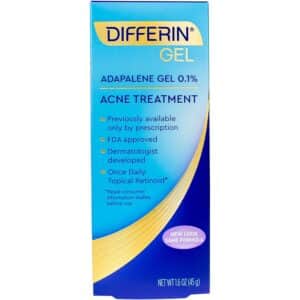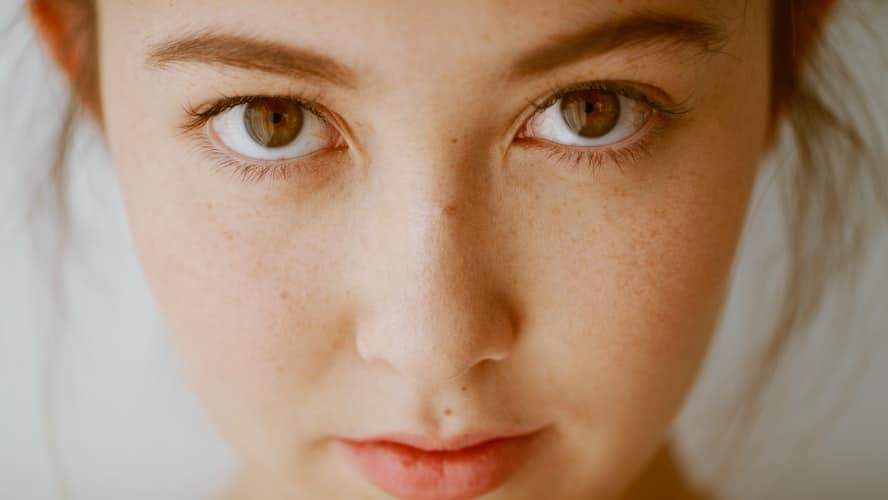Do I Have to Use Differin Forever? The answer is NO for the following reason. Once you have achieved the desired outcome of your acne, it’s time to move on. If you are still experiencing breakouts or find yourself in need of stronger medication such as Differin Gel 0.03% for more stubborn cases, then stick with what works for you. But when you are in the clear, it’s time to explore your options.
Many people find that when they stop using Differin Gel 0.03%, their acne flares up again. But, that is mostly due to a different type of acne, such as cystic or sensitive skin acne. They do require specialized products and treatment than Differin Gel 0.03%. Therefore, it’s important to know the type of acne you have before jumping ship from Differin.
If your skin is doing well without the treatment and the breakouts are few and far between, then stay on with this lifestyle. If not, try a product that has different ingredients or prescription medication if you need stronger treatment.
Are you interested in learning more about the topic? Read on!
What is Differin?
Differin Gel 0.03% is a topical retinoid medication used to treat acne and other skin disorders such as wrinkles, age spots, and sun-induced discoloration from dark circles under your eyes.
It works by blocking oil production from glands found under your skin and shrinking the overactive oil glands, which prevent clogged pores. It also decreases redness, inflammation, and acne breakouts for a clearer complexion.

What are the Benefits of Using Differin?
There are many benefits of using Differin, but the main one is that it decreases redness and inflammation, making acne less noticeable. It also prevents clogged pores by shrinking your skin’s oil glands. Below are the other pros of using the product.
● It’s topical hence doesn’t stay in your system as other treatments do.
● You only need to use Differin once a day and not every night. It means you have more time to sleep.
● If dermatologists use it directly, there will be no serious side effects associated with it.
● It’s a great option for those who have moderate acne and want to avoid the use of antibiotics or retinoids that could be harsh on their skin.
● Differin is more affordable than other options because it only needs to be used once per day instead of every night, which makes it less expensive in the long run.
How Can I Prevent More Breakouts While Using Differin?
It’s important to avoid harsh skin products, cosmetics, or anything with high alcohol content. They will irritate your skin and cause it to react poorly, which might lead to more acne. It’s also recommended that you not use any other topical retinoids because they will lead to over-exfoliation.
How Long Should I Take Differin?
It’s important to speak with your dermatologist before taking Differin because the medication usually lasts 12 weeks. If you stop using the drug and experience side effects, switching up your topical retinoid routine might be time.
How Can I Know if My Acne is Responding Well to Differin?
There are many ways to find out if your acne is responding well to Differin. Some people notice a decrease in redness and inflammation, reduced breakouts, or increased skin clarity. Since everyone’s skin is different, the best way to find out how well Differin works for you is by giving it a try. It’s best to speak with your dermatologist about what you to do other than using Differin.
What Topical Retinoids Should I Avoid While Taking Differin?
It’s important to avoid other topical retinoids, especially those with tretinoins. They will lead to increased irritation which might make your acne worse. Tazarotene is a retinoid that is similar to Differin. Please do not use it at the same time as Differin.
Follow These Steps to Use Differin Effectively.
Step One: Wash Your Face with a Gentle, Non-drying Cleanser
A common mistake people make is washing their skin too often or using harsh products that irritate the skin and cause it to break out more. You need to cleanse gently but thoroughly to remove all dirt and oil from your skin.
Step Two
Apply a thin layer of Differin gel to the entire face once daily at night and leave it on. It’s important to note that you should avoid applying any other products while using Differin. They could interfere with its effectiveness. Use Differin only and consistently for best results.
Step Three
Keep your skin hydrated with a moisturizer. The moisturizing product you use should be comfortable and offer proper protection against the sun if necessary. It would be best if you also avoided over-exposing yourself to sunlight, especially between noon and three in the afternoon when it is at its strongest. That will help you prevent more flare-ups.
Step Four
Check-in with your doctor every six weeks during the first few months. They will help you ascertain that Differin is working well and not causing any negative effects such as dry skin or irritation. Take a list of all products you’ve been using on your face, including any prescriptions. The doctor will tell you whether it’s safe to continue using them.
Step Five
Consult your physician before stopping Differin. Suppose you stop taking this medication altogether or for more than two weeks at a time during treatment. In that case, you’ll likely experience hormonal acne again within six months of returning on the medication.
Step Six
Get in the habit of using Differin every day, even when you don’t have any breakouts or skin problems. It will help prevent future outbreaks and keep your skin looking healthy and vibrant for years to come.
Step Seven
Differin is a retinoid and can cause side effects such as irritation, dry skin, or excessive peeling. Consult your doctor if you experience any of these symptoms to determine the best course of action for you.
In general, it is ideal not to use Differin forever because there are many different types of topical retinoids on the market that can be more effective for different skin types and conditions.

